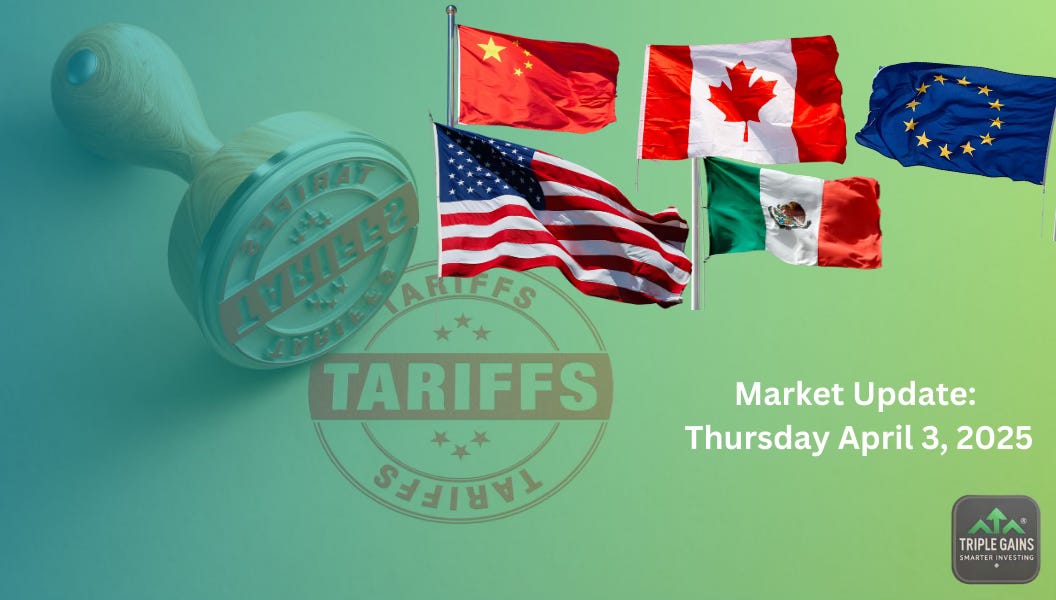Tariff Impact Sends Markets Lower, Volatility Expected to Persist
US Equities Slide Amid Tariff Uncertainty
US equities were sharply lower this morning following the Trump administration’s announcement of a broad tariff policy. The Dow dropped 2.61%, the S&P 500 fell 3.15%, and the Nasdaq lost 4.19%, marking a significant reversal after three consecutive gains. The Russell 2000 saw a 4.03% decline, as small-cap stocks were hit hard by the market-wide selloff.
Sector Impact
Big tech stocks were among the worst hit, with Apple (AAPL), Amazon (AMZN), and Tesla (TSLA) all falling more than 5%. Retail/apparel, semiconductors, and airlines also faced heavy losses. On the defensive side, consumer staples, managed care, and pharmaceuticals held up better, as investors sought safety in more stable sectors.
Global Risk-Off Sentiment
The market’s risk-off sentiment stems from the unexpectedly harsh tariffs, which include a 10% across-the-board tariff, along with even higher tariffs on specific countries: 34% on China, 32% on Taiwan, 46% on Vietnam, and 20% on the EU. The market is now grappling with heightened stagflation fears, as inflationary pressures from tariffs add complexity to any potential Federal Reserve easing.
The announcement has sparked fears of a retaliatory tariff race and growing policy uncertainty, especially as the calculation of reciprocal tariffs by the US Trade Representative (USTR) is now under scrutiny. The broader uncertainty continues to weigh on market sentiment, as valuation concerns and risks to the consensus earnings outlook for 2025 add further pressure.
Economic Data and Corporate News
Jobless claims came in below consensus, but continuing claims were higher than expected, signaling some stress in the labor market. This is in contrast to recent news of rising layoffs, particularly in industries exposed to the tariff increases. Meanwhile, markets are anticipating the March employment report on Friday, with nonfarm payrolls expected to show a 140K increase.
On the corporate side, companies such as RH (Restoration Hardware) and Best Buy (BBY) saw significant declines, with concerns around outsized tariff exposure, excess inventory, and weakening consumer sentiment. Nike (NKE) also dropped 11.8% on fears of tariff impact from its production in Vietnam and China.
What’s Next?
With the market now pricing in a steeper Fed rate cut path, attention will shift to how the economy responds to these tariff policies. Analysts expect that tariff-related uncertainty will keep inflation concerns high, and the risk of a slowdown in corporate earnings will likely persist. Fed officials are expected to provide more clarity on the potential for rate cuts, and economic data, particularly employment figures, will be crucial in determining whether the central bank will act sooner rather than later.
Here’s Our Take
The markets are in a heightened state of volatility, with the uncertainty surrounding the latest tariff announcement compounding fears about inflation and growth. With increased risks across multiple sectors and a growing likelihood of a Fed rate cut in the near term, investors should brace for more fluctuations in the coming weeks. It’s important to stay tuned for any updates on tariff negotiations, as well as employment data, which will be crucial in setting the direction for the markets.



